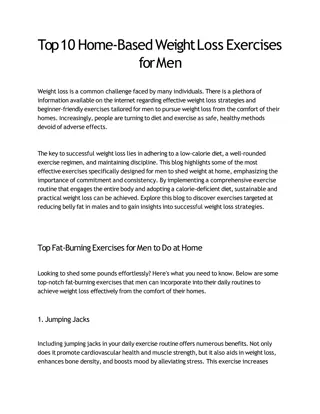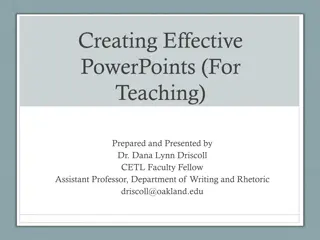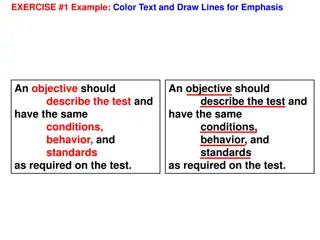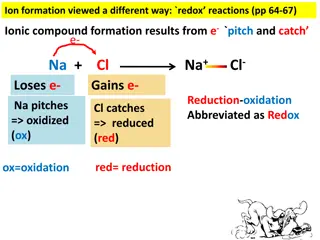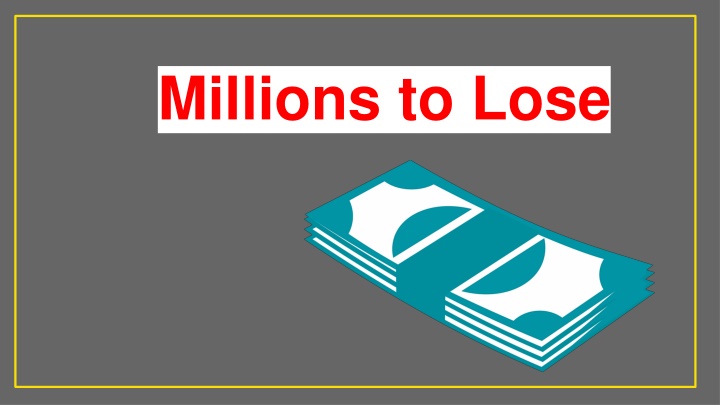
Famous Figures in the Fight Against Slavery
Learn about famous personalities who played pivotal roles in abolishing slavery, including William Wilberforce and Abraham Lincoln. Explore their quotes and contributions that helped end the cruel practice of slavery. Discover the average cost of a healthy slave in 1860s America and its equivalent in today's money.
Download Presentation

Please find below an Image/Link to download the presentation.
The content on the website is provided AS IS for your information and personal use only. It may not be sold, licensed, or shared on other websites without obtaining consent from the author. If you encounter any issues during the download, it is possible that the publisher has removed the file from their server.
You are allowed to download the files provided on this website for personal or commercial use, subject to the condition that they are used lawfully. All files are the property of their respective owners.
The content on the website is provided AS IS for your information and personal use only. It may not be sold, licensed, or shared on other websites without obtaining consent from the author.
E N D
Presentation Transcript
Q1: Which person said this famous phrase? You can chose to look the other way but never again can you say you didn t know A. B. Harriet Tubman Winston Churchill D. C. William Wilberforce David Cameron
C. William Wilberforce (24 August 1759 29 July 1833) was a politician in the 1700 s and 1800 s. William Wilberforce
Q2: What was he talking about? A. B. Domestic Violence Slavery D. C. Poverty Evolution
B. Slavery was a big business in William Wilberforce's day; the times of the transatlantic slave trade. Slavery William could not believe how people were treated and tried to tell parliament that they could not act ignorant anymore. William wanted to ban slavery in the UK and petitioned for 20 years when he finally managed to get slavery banned. In 1807 the Slave Trade Act was put into place to cease the trading of slaves. The Slavery Abolition Act 1833 made it illegal to own a slave in the UK. William died in 1833, before the Act was put into practice (in 1834).
Q3: Which person said this famous phrase? "Whenever I hear anyone arguing for slavery I feel a strong impulse to see it tried on him personally." B. A. Frederick Douglass Thomas Clarkson D. C. Abraham Lincoln Harriet Tubman
C. Abraham Lincoln Abraham Lincoln was the President of America from 1861- 1865 Abraham Lincoln never owned a slave and his father was important influencer in the fight against slavery in America. Abraham Lincoln made slavery illegal in America in 1864. Abraham Lincoln was assassinated in 1865
Q4: What was the average cost of a Healthy slave in 1860s America? Equivalent in today's money ( ) According to Free the Slaves (2012) A. B. 90 13,500 D. C. 40,000 1,500
C. In the 1860 s the cost of a slave in America could range wildly. A male or female slave with no other skills would be sold for a minimum of $800. In today s money that is 18,000. 40,000 However some slaves who may have been a Blacksmith, a carpenter, a cook, or possessed other domestic skills may be sold for around 100,000 or more in today s money. It wasn t rare for a slave to cost the amount of a house in the 1860 s. These figures are estimates but show just how much money was made from slavery in the UK and America in the 18th and 19th centuries.
Q5: How much was the average (est.) cost of a slave in 2012? According to Free the Slaves (2012) B. A. 90 13,500 D. C. 41,000 81,000
A. Often slaves are taken and made to work without being sold. They can be tricked into work or taken from the streets. In the case where slaves are sold the money they are sold for can range from nothing to hundreds of thousands. However the majority of slaves are sold for little to nothing. Therefore the average of a slave in today s money is an estimated 90. 90 Remember that people are sold often more than once, making the trafficker a lot of money from one person. In this whole process, the person does not get a say in their own life. These figures are estimates. And even though slavery is awful in essence, these statistics show the devaluing of human life.
Q6: How many slaves are estimated to be currently held in slavery? According to the Global Slavery Index (2018) A. B. 20.7 million 10.5 million D. C. 30.4 million 40.3 million
The Global Slavery Index estimates that 40.3 million people are currently held in slavery around the world. D. What percentage of the world is that? 40.3 million There is no typical person who might be a slave. These statistics do not reveal much about who is held in slavery. It could be anyone, any age, any gender, any nationality. Every country has slavery in one form or another. This figure is larger than the amount of slaves held at any one time in the transatlantic slave trade. Differing definitions of slavery can also be taken into consideration for this statistic. How did modern slavery get so big? Some things statistics can t tell us.
Q7: How many slaves are there currently held in the UK (Est.) According to the Home Office (2014) A. B. 1,000-5,000 20,000-23,000 D. C. 10,000-13,000 58,000-61,000
C. In 2014 the UK Home Office estimated there are 10,000-13,000 people in slavery in the UK 10,000-13,000 Since 2014, more information has been available in regards to human trafficking and modern slavery. The UK estimates that for every slave they rescue/escapes there are about 4 still unaccounted for. Do we think this number is still the same? If the government is aware of the scale what are they providing to help tackle the problem?
Q8: How many slaves are there in the UK currently? (Est.) According to the Global Slavery Index (2018) B. A. 13,000 59,000 D. C. 97,000 136,000
D. Why does the number differ so much? 136,000 Often different methods of data collection are used by different reports. We may never know the true number, but one person in slavery is one person too many.
Q9: WHat is the most common type of Modern slavery in the UK? According to the National Referral Mechanism (2018) A. B. Labour Exploitation Sexual Exploitation D. C. Domestic Servitude Organ Harvesting
A. Labour Exploitation is the highest form of slavery in the UK. 1.Labour Exploitation This statistic is based on the information from rescued slaves. The other types of slavery may have higher levels in the UK but levels of rescue for these may be lower. Types of common labour exploitation: 2. Sexual Exploitation Farm Work (e.g. picking vegetables) Cannabis Farms County Lines (children made to traffic drugs) Laying Driveways Nail Salon Work Car Washes 3. Domestic Servitude 4. Unknown ORGAN HARVESTING - there was three cases in 2017 of organ harvesting in the UK. This is rare however more cases may be happening without authorities knowing. 5. Organ Harvesting
Q10: How many potential survivors were referred to the National Referral Mechanism in 2017? A. According to the National Crime Agency (2018). B. 3818 514 D. C. 5145 818
C. This is a 35% increase on the 2016 statistics 5145 Awareness on the issue could be reason for the rise. If there are 13,000 slaves in the UK, this would mean a large proportion are being rescued - do you think this is the case? Out of those referred, not all of the potential slaves are declared slavery status. In the UK 2,688 of referrals were men 2,454 referrals were women 3 referrals were transgender 2,118 referrals were children 3,027 referrals were adults Main agencies who find slaves are: Police, Local Councils, Third Sector.
Q11: What proportion of the UK public know what Modern Slavery is? According to the National Crime Agency (2018). A. B. 4 in 10 7 in 10
What can we remember? A. 4 in 10 ...THIS NEEDS TO CHANGE... How many slaves in the world? .. . .. How many slaves in the UK?(Max and min).. .. Why is there such a difference? . .. .. What was the top form of slavery in the UK in 2017?. .. .. Do we know any other forms of modern slavery/sub categories? ..... .. Were any of the statistics shocking? . . .. How can we make a difference? .. ..


